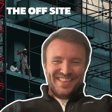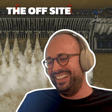
Japan's Maglev: 250km of Tunnel Through Earthquake Country
Join Jason and Carlos as they explore three major infrastructure and technology developments:
🚄 Japan's $60 Billion Maglev Project: Explore Japan's ambitious $60 billion Chuo Shinkansen Maglev project connecting Tokyo to Nagoya in 40 minutes. Discover the engineering challenges of building 250 kilometres of tunnel through earthquake-prone terrain and fault lines deep underground.
💰 Germany's €500 Billion Bet: Germany announces a massive infrastructure fund to transform its roads, railways, and digital networks. Learn how this fiscally conservative nation plans to double its infrastructure spending over the next decade.
🏗️ Construction Tech Headlines Test: Jason, Carlos, and producer Olu examine whether construction technology companies communicate their services through a guessing game, analysing real website headlines to see if they can identify what each company does.
Key Timestamps:
00:00 - Introduction & AI Blackmail Discussion
04:58 - Japan's Maglev Project Deep Dive
11:52 - Germany's €500 Billion Infrastructure Fund
22:01 - Construction Tech Headline Challenge
Check out the Off Site newsletter here
Follow Carlos on Linkedin | Follow Jason on Linkedin | Check out Aphex



















